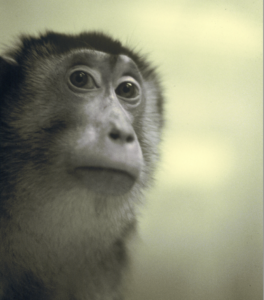 Increasing investment and support for neuroscience research involving monkeys is critical to realize our hope for advancing human health and reducing suffering for millions of people confronting diseases like Alzheimer’s, bipolar dis- order, depression, anxiety, schizophrenia. So argues Dr. Michele A. Basso, core scientist in the Neuroscience unit of the Washington National Primate Center.
Increasing investment and support for neuroscience research involving monkeys is critical to realize our hope for advancing human health and reducing suffering for millions of people confronting diseases like Alzheimer’s, bipolar dis- order, depression, anxiety, schizophrenia. So argues Dr. Michele A. Basso, core scientist in the Neuroscience unit of the Washington National Primate Center.

Basso and partners with the Simian Collective penned an urgent commentary in the Journal of Neuroscience this month, framing the nonhuman primate neuroscience as one of “peril or possibilities.”
In the piece, Basso notes that the cost to the United State to treat neurological and neuropsychiatric disorders at more than $1 trillion annually. And that monkeys will be necessary for the discovery, development, and testing of treatments because monkeys share traits with humans that other testing animals lack.
A big hurdle to progress is a shortage of monkeys for research, highlighted in a 2023 report from the National Academy of Sciences, Engineering, and Medicine. The shortage, and subsequent high costs, prevents scientists from advancing treatments.
“To ensure a sustainable resource of non- human primates for biomedical research, including and especially in neuroscience, the US must engage in domestic capacity building,” Basso argues.
And while new approach methods are pursued, she writes, “developing treatments and cures for Alzheimer’s disease and related neurodegenerative diseases, and the many neuropsychiatric illnesses, will all ultimately require an understanding of the brains of primates and perhaps the immune system, which, like the brain, is significantly more like humans in monkeys than in rodents.”
Read the full text in the Journal of Neuroscience. Explore the Neuroscience unit at WaNPRC.